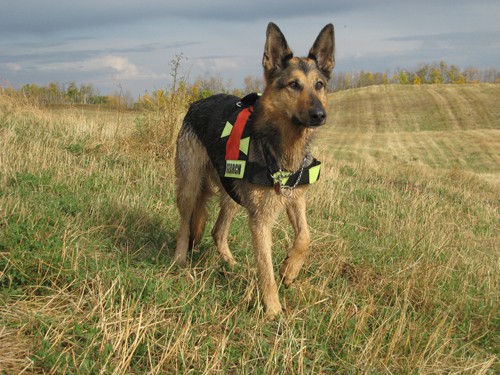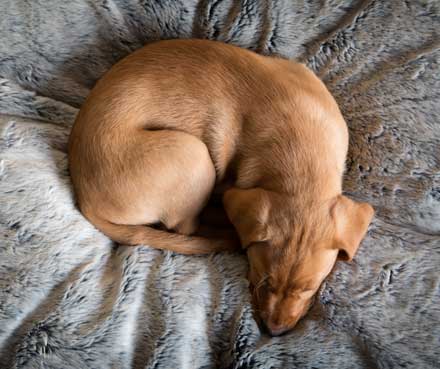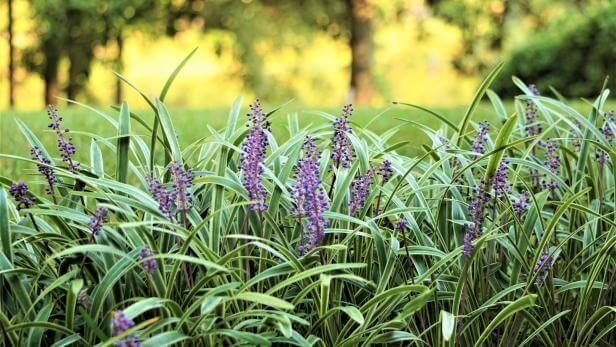When looking for a low-maintenance and easy-to-find plant to cover your lawn beds or garden, monkey grass does the trick.
It is available in virtually every part of the globe, is easy to care for, and stands up very well to heat, no wonder the southern states love it so much.
This Asian native is also tolerant to drought, deer, dogs, shallow soil, and being crushed by all kinds of things (cars, bikes, and bicycles).
Plus, it grows thick and mat-like with showy flowers even with little or no fertilizer.
Put simply, there are plenty of reasons to roll up your sleeves and fill your lawn with Monkey grass.
But how safe is it for your dog?
Certain plants are dangerous for our canine buddies. From causing stomach upsets and liver failures to triggering allergic reactions, some of the garden plants we love are not dog-friendly.
No matter how much you love such plants, you are better off without them for the safety of your pet.
In this post, we will narrow down to monkey grass and see if it is safe to dogs or not.
Let’s dive right in…
What Is Monkey Grass?
Also called liriope or border grass, monkey grass is a thick perennial groundcover that resembles turf grass but belongs to the asparagus family.
It is an excellent plant in most gardens and beds.
It is commonly referred to as lily turf and comes with showy violet and purple flowers.
For anyone looking for an ornamental flower that thrives in most gardens, the monkey grass fits the bill.
It is beloved for its beauty and high tolerance level. You can grow it in the sun or in an enclosed area, and with little water, it will still thrive.
In warm winter areas, the plant remains evergreen and dies back in winter.
When the flower is in its bloom, it is full and gorgeous to look at.
Monkey grass essentially comes in two strains – Liriope muscari and Liriope spicata.
The former is the most common perennial with low, neat grassy foliage consisting of blue-purple spikes that emerge in autumn.
The flower gives rise to blackberries, which stay in place into winter.
Liriope spicata, on the other hand, is commonly referred to as the creeping lily turf and looks somewhat like Liriope muscari except for a few notable differences.
The first difference is that it grows rapidly and fills up the planting site faster than the first strain.
It also produces erect flowers only that they are white or lavender and mainly bloom in summer.
Is Monkey Grass Poisonous To Dogs?

According to the LSU School of Veterinary Medicine, Liriope is not poisonous to dogs.
All parts of the plant including the leaves, stem, and berries are totally safe for your pooch. This is true for both strains of monkey grass.
There are no reports of toxicity to people, cats, dogs, birds, livestock, and horses.
Your dog can get away with ingesting lily turf berries or rolling in the ground cover without developing any issues. This is true for your kitty and children too.
Granted, there are several rumors on the internet of pet parents claiming that the herbaceous plant is poisonous but these are baseless, to say the least.
Dogs, as we know them, love to eat grass and throw up later. If you are a rookie pet parent, it is likely that you will jump to the conclusion that the grass the dog just ate is to blame for the vomiting.
However, dogs chomp on the grass to expel something in their gut no wonder they vomit.
Others eat just for the fun of it or to get some lacking nutrients in their diet.
Monkey grass simply has no toxicity towards dogs.
Learn also: Is Zebra Grass Toxic to Dogs?
The Other Side of the Coin

With that said, monkey grass, when consumed in large quantities can trigger tummy upsets in dogs.
This can happen if the pooch eats any part of the herbaceous plant.
So, even if the plant is technically safe for dogs, it is not the best fiber option if eaten in large quantities.
If your doggie chomps on copious amounts of the plant, he may start to vomit or suffer from an upset tummy.
You may want to rush them to the vet to flash the grass strands from his system and get him back to good health.
Going forward, consider taking time to determine the cause of the behavior.
- Could it be that your pup needs more fiber for his gut?
- Is he stressed over something and uses grass-eating to relieve his anxiety?
- What if the poor thing ate something and needed to vomit so badly?
Your vet should be able to answer these questions and provide solutions for your dog’s love for ingesting monkey grass.
Parting Thoughts
Dogs are very adventurous. They spend a lot of time exploring everything—both indoors and outdoors.
It is your duty to protect them from poisonous plants.
That means being aware of what is poisonous in your garden.
Fortunately, Liriope is a non-toxic plant for dogs.
Unless your dog ingests a large amount of the herbaceous plant, he should be okay.
Watch out for vomiting, scratching, and stomach discomfort in case he decides to go heavy on it, though.
Related: Are Dianthus poisonous to dogs?
As an Amazon Associate, we may receive a small commission from qualifying purchases but at no extra cost to you. Learn more. Amazon and the Amazon logo are trademarks of Amazon.com, Inc, or its affiliates.

